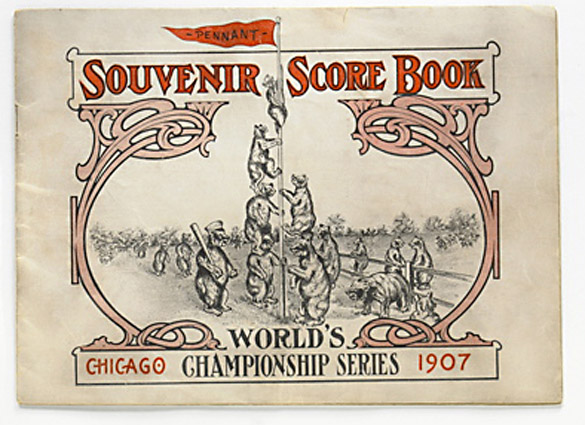A Philosopher's Dozen
Selections from the writings of Stephen Yablo
Is Conceivability a Guide to Possibility?
WITHOUT A DOUBT, sliding from epistemic to metaphysical “could” is something we sometimes do, though we really should not. But, could a mix-up this basic really be all there is to the conceivability maxim? Probably the locus classicus of the supposed confusion is Descartes’s argument in the Meditations for the possibility of disembodied existence. Finding in the “First Meditation” that there might, for all he knows, be no material things, he suggests in the “Second” that he can exist without them. Isn’t Descartes reasoning here that since he “could,” in the believability sense, exist without benefit of matter, he “could” do it in the metaphysical sense as well?
Part of the problem with such an interpretation is just that the attributed argument is so awful. But never mind that: if Descartes is attracted to this sort of argument, why does he not use it more often? At this point in the Meditations, remember, Descartes finds virtually everything believable, including for instance that he is essentially a body, and that God does not exist.
Conceivable and believable
Shouldn’t he then conclude that these other things are possible as well? To answer that he doesn’t conclude that they are possible, because he doesn’t believe that they are possible, treats Descartes as rather more arbitrary than his position requires. Surely it would be better if we could make him out to mean something other than “believable” by “conceivable,” such that he does not find it conceivable, in the sense he means, that he is essentially a body, or that God does not exist.
Or take the example of our finding it conceivable, in the sense of believable, both that Goldbach’s conjecture holds and also that it fails.
If the inference from epistemic “could” to metaphysical “could” were so inviting, then it ought to seem strange that not a single author has concluded that although in some possible worlds, every even number is the sum of two primes, in others one or more of them stops being the sum of two primes. Was it just that they knew that in this case, such a conclusion would be counterintuitive?
Again, a more sympathetic interpretation would be that conceivability, in the sense relevant to possibility, is a different thing from believability; and that neither Goldbach’s conjecture nor its negation is conceivable in the relevant sense. (Reid: “I have never found that any mathematician has attempted to prove a thing to be possible because it can be conceived...” (Reid 1969, essay IV, chapter III).)
Possible and believable
I agreed that “conceivable,” as it occurs in daily conversation, usually does mean “believable.” In fact more is true. Not only “conceivable” but even "possible" normally indicates believability. Suppose, for example, that I tell you “it is possible that I was born on the moon.” Assuming that I metaphysically could have been born on the moon, why does my statement sound so incredible?
The reason is that “it is possible that p,” where the embedded sentence is in the indicative mood, expresses uncertainty that p is false. Thus “it is possible that I was born on the moon” says, not that this could have happened although it didn’t, but that I am not entirely convinced I was born on Earth. (To assert genuine possibility, I must say “it is possible for me to have been born on the moon,” or “it is possible that I should have been born on the moon.”)
There are two directions to this: conceivable propositions need not be believable, and believable propositions need not be conceivable. The easy direction is the first. An old Jewish saying runs: “Life is so full of misery and woe; how much better it would have been never to have existed at all; yet how many of us are that lucky?” Thinking about this, I find it conceivable that I should never have existed. Never for a moment, though, do I find it believable that I have never existed.
Conceivable, but not believable
So here is an example of a conceivable proposition that isn’t believable. Of believable propositions that aren’t conceivable, it is difficult to give a pure example, if this means a believable proposition which is positively inconceivable. After all, if p is believable, then the actual world might for all I know be a p-world. So I am unlikely to have it appear to me that p cannot be true in any possible world.
Perhaps there can be an impure example, though. Sometimes when we find ourselves unable to conceive a proposition, we don’t find it inconceivable either; its modal status is undecidable on the available evidence. Despite what you often hear, this is how it is with Goldbach’s conjecture. No thought experiment that I, at any rate, can perform gives me the representational appearance of the conjecture as possible or as impossible, or the slightest temptation to believe anything about its modal character. So this is already an example of a believable proposition that is not conceivable. But let me suggest some more interesting cases.
Solomon's wisdom
According to legend, the Queen of Sheba tested Solomon’s wisdom by challenging him to distinguish a flower from a wax facsimile thereof constructed in the royal workshop. Suppose that she introduces these look-alikes to Solomon as Rose and Rosa—without, of course, telling him which is the artifact and which the flower. Then initially, before he determines, with the help of a bumblebee from the garden, that Rosa is the waxen artifact, Solomon finds it believable that Rosa should sprout new petals. Does he find this conceivable, though, in the sense relevant to possibility?
Not if the stories about his wisdom are correct; he finds it undecidable on the available evidence. “If I assume that Rosa is a flower,” Solomon might reflect, “then I can conceive it sprouting new petals; and if I assume that it is an artifact, then this becomes inconceivable for me. As it is, though, the petal hypothesis is neither conceivable nor inconceivable.”
Another story has Solomon ruling on a maternity case: is Ruth, or Naomi, the mother of this baby? Eventually he resolves the issue in Naomi's favor, by offering to saw the baby in half. But initially, when Solomon found it believable both that Ruth was the mother and that Naomi was, did it appear to him that the baby’s ancestry was metaphysically contingent? Only if such an appearance was compulsory could one maintain that believability entailed conceivability. •

